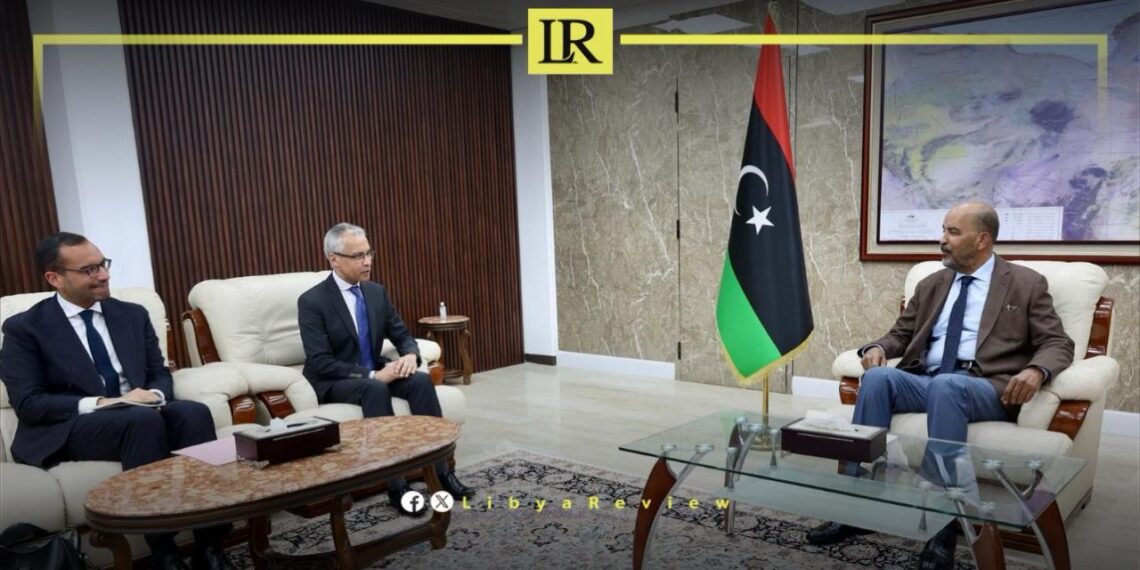Deputy Head of the Libyan Presidential Council, Musa Al-Koni, received an official invitation to participate in the International Humanitarian Conference for Sudan and its Neighbours.
The invitation was extended during his meeting with the French Ambassador to Libya, Mostafa Mihraje.The Conference is scheduled to take place in Paris in mid-April.
The French Ambassador expressed his country’s appreciation for the participation of the Presidential Council in this important global event, which will bring together regional and international parties concerned.
Mihraje explained that the objective of the conference is to coordinate various international and regional initiatives aimed at resolving the crisis that has been affecting Sudan since the outbreak of armed confrontations between conflicting parties.
Al-Koni stated that what is happening in Sudan, or any neighboring country, directly impacts the security and stability of Libya. He highlighted the recent neutral reception of the conflict parties in Tripoli to find urgent and effective solutions to the crisis.
Last month, the head of the Libyan Presidential Council, Mohamed al-Mnifi, and the President of Sudan’s Sovereignty Council, First Lieutenant General Abdel Fattah Al-Burhan, have agreed to enhance bilateral relations through the exchange of delegations and the activation of previously signed agreements during discussions in Tripoli.
The talks focused on bolstering economic, political, and military ties between Libya and Sudan, with a mutual goal of achieving peace and stability in Sudan and the broader region.
Al-Burhan commended Libya for its supportive stance towards Sudan in regional and international forums, highlighting Libya’s advocacy for Sudan’s unity, national security, and stability, and its opposition to negative foreign interventions.
During a joint press conference, Al-Burhan expressed gratitude towards Libya for hosting tens of thousands of Sudanese refugees.
Africa Intelligence has detailed the unsuccessful mediation attempt by Libyan Prime Minister Abdel-Hamid Dbaiba, of the Government of National Unity, in the Sudanese civil conflict. Despite efforts to contribute to resolving the situation, Dbaiba’s initiatives have not produced the intended outcomes.
In light of this, Washington and Riyadh are now seeking to facilitate the resumption of dialogue to terminate the civil war, reflecting the difficulties external entities face in addressing such intricate disputes and the persistent instability within Sudan.


